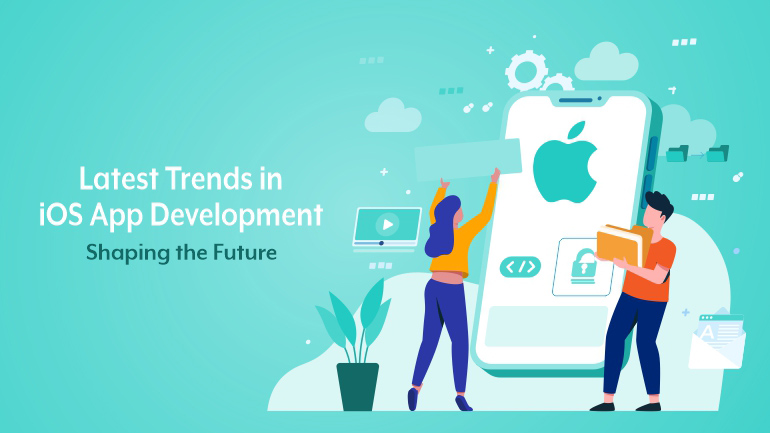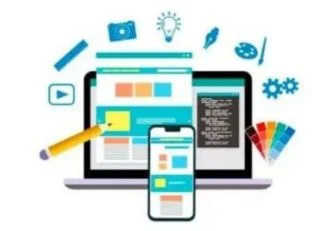In the fast-paced world of mobile technology, iOS app development is constantly evolving. Developers need to stay updated with the latest trends and advancements in order to stay ahead of the competition. This article will delve into the exciting world of iOS app development technologies, shed light on the latest trends, and discuss their implications for the future of mobile applications.
The Rise of Swift: A Game-Changer in iOS Development
Swift, Apple's innovative programming language, has rapidly gained popularity among iOS app developers. Its simplicity, efficiency, and powerful features have made it a game-changer in the industry. With Swift, developers can build apps that are faster, more reliable, and highly secure. The language's interoperability with Objective-C allows developers to seamlessly integrate existing codebases, making it easier than ever to transition into Swift development. As the demand for Swift developers continues to rise, it's crucial for iOS app developers to master this language in order to stay relevant in the industry.
Embracing Augmented Reality (AR) in iOS Apps
Augmented Reality (AR) has taken the mobile app development world by storm, offering a truly immersive and interactive user experience. Apple's ARKit has opened up a whole new world of possibilities for iOS Developers, enabling them to create innovative AR apps. From gaming and retail to education and healthcare, AR has the potential to revolutionize various industries. With the ability to overlay digital content onto the real world, AR apps provide users with a unique and captivating experience. By incorporating AR into their iOS apps, developers can create engaging and personalized experiences that keep users coming back for more.
Harnessing the Power of Machine Learning (ML) in iOS Development
Machine Learning (ML) has become a buzzword in the tech industry, and iOS app development is no exception. With Core ML, Apple's machine learning framework, developers can easily integrate ML models into their iOS apps. This opens up a plethora of possibilities, from enhancing user experience through intelligent recommendations to automating complex tasks. Whether it's creating a language translation app or a virtual personal assistant, ML has the potential to transform the way we interact with iOS apps. By leveraging the power of ML, developers can create intelligent and intuitive apps that cater to the specific needs and preferences of their users.
The Revolution of Internet of Things (IoT) and iOS Apps
The Internet of Things (IoT) has become an integral part of our daily lives, and iOS app developers are at the forefront of this revolution. With Apple's HomeKit framework, developers can seamlessly integrate iOS apps with smart devices, creating a connected ecosystem. From controlling smart home devices to monitoring health and fitness, IoT opens up endless possibilities for iOS app development. By capitalizing on this trend, developers can create apps that enhance convenience, efficiency, and connectivity for users, ultimately transforming the way we interact with our surroundings.
Embracing Cloud Technologies for Scalability and Flexibility
As iOS apps become more complex and data-intensive, the need for scalable and flexible solutions is paramount. Cloud technologies offer the perfect solution, enabling developers to store and process data in a dynamic and cost-effective manner. With Apple's CloudKit framework, developers can seamlessly integrate cloud storage, push notifications, and serverless computing capabilities into their iOS apps. By harnessing the power of the cloud, developers can create apps that scale effortlessly, adapt to changing demands, and provide a seamless user experience across devices. Here you go for best ios app development company in us.
Conclusion
As technology continues to evolve at a rapid pace, iOS app developers must stay ahead of the curve by embracing the latest trends and advancements. From the rise of Swift to the integration of AR, ML, IoT, and cloud technologies, the future of iOS app development looks promising. By keeping up with the latest trends and leveraging these technologies to their advantage, developers can create innovative and successful apps that cater to the ever-changing needs and preferences of their users.
FAQs
Q1.Why is Swift considered a game-changer in iOS app development?
A: Swift stands out for its simplicity, efficiency, and powerful features, making iOS apps faster, more reliable, and highly secure.
Q2.How does Augmented Reality (AR) impact iOS app experiences?
A: AR, facilitated by Apple's ARKit, revolutionizes user experiences by offering immersive interactions across industries like gaming, retail, education, and healthcare.
Q3.What role does Machine Learning (ML) play in iOS app development?
A: Core ML, Apple's ML framework, empowers developers to integrate intelligent features, from personalized recommendations to task automation, transforming user interactions.
Q4.How does IoT contribute to the evolution of iOS apps?
A: Apple's HomeKit framework allows seamless integration with smart devices, enabling iOS apps to create a connected ecosystem for controlling home devices and monitoring health.
Q5.Why are Cloud Technologies crucial for scalable iOS app development?
A: Cloud technologies, including Apple's CloudKit, provide scalable and flexible solutions, allowing developers to store, process, and adapt data dynamically for a seamless user experience across devices.
Categories
- Software Development
- Web Development
- iOS Development
- UI/UX Design
- Web Design
- Digital Marketing
- Graphic Design
- Android Development





